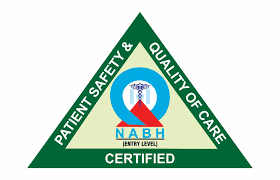Lasik Surgery for Army Candidates: What You Need to Know
Introduction
Visual acuity is very important in the Indian Army. Many candidates look into vision correction options like lasik surgery to meet strict requirements. This blog is a helpful guide for those aiming to join the army and thinking about lasik. It covers everything from eyesight standards and who can get the surgery to how lasik can affect a career in the military.
Indian Army Eyesight Requirements
The Indian Army, Air Force, and Navy, each maintain specific minimum vision requirements that candidates must meet for enlistment. While these requirements can vary slightly depending on the specific role or branch, the emphasis on good visual acuity remains consistent across all branches.
Generally, candidates are expected to have a minimum uncorrected visual acuity of 6/6 in one eye and at least 6/9 in the other, correctable to 6/6. Color vision is also critical, and candidates are typically tested for color blindness. The table below presents a general overview; however, it’s crucial to refer to official recruitment guidelines for the most up-to-date and specific vision standards:
| Branch | Distant Vision (Correctable) | Color Vision |
| Indian Army | 6/6, 6/9 | Normal |
| Air Force | 6/6 | Normal |
| Indian Navy | 6/6, 6/9 | Normal |
While meeting these minimum standards is essential, certain specialized roles, such as pilots in the Air Force or officers in the Navy, often demand even higher levels of visual acuity. Candidates considering these roles should be prepared for more stringent vision tests.
Color vision is also very important. Candidates must tell apart basic colors accurately. They use Ishihara plates to test for color blindness. Problems with color vision can seriously hinder important tasks in the army. Therefore, this is a must-have requirement during the selection process. Good binocular vision, which is the ability to use both eyes together well, is also often needed, especially for jobs that need depth perception and hand-eye coordination.
Understanding Lasik Surgery to Join Army
Lasik surgery is a popular way to correct vision. It uses lasers to change the shape of the cornea, which is the clear front part of the eye. This helps people see better without the need for glasses. First, the doctor creates a thin flap in the cornea using a small blade or a laser. After lifting the flap, a precise excimer laser reshapes the cornea to fix the person’s refractive error.
Another option is Photorefractive Keratectomy (PRK). It is similar to Lasik and also uses laser surgery for vision correction. However this is a Surface treatment and Flapless. In PRK, the surgeon takes away the outer layer of the cornea, called the epithelium. This allows the laser to reshape the tissue beneath it. While both Lasik and PRK aim to improve vision, they do it in different ways and have different recovery times.
A thorough Screening test is done by the Ophthalmologist or LASIK Surgeon, to determine if your Cornea is healthy for any Laser Refractive Correction.
Now there are more advanced Surgeries like Contoura Vision and Epicontoura Laser Vision Correction (Streamlight PRK) for removal of Spectacles. These are accepted in Army Candidates.
Although many people do LASIK surgeries, the best results would be with thorough planning done by a trained Cornea and LASIK Expert.
If you are looking for LASIK in Delhi NCR, at Clio Eye Care, Gurugram all the procedures are done by a certified and Internationally Trained Cornea and LASIK Surgeon, Dr. Aditi Manudhane (MS, DNB, FICO, FAICO, MNAMS).
To know more about Contoura Vision Cost and Epicontoura Surgery , contact on +91 7042082744. Click on the link below to know more. https://www.clioeyecare.com/contact/
Is LASIK allowed for Defence Services?
Undergoing Lasik eye surgery can have a big impact on your application to join the armed forces. While this eye surgery is usually accepted, you must fully share details about the surgery and its results in your medical records. The armed forces look at candidates who had Lasik on a case-by-case basis, taking into consideration factors such as how much time has passed since the surgery, what was the type of Surgery, Spectacle power prior to Surgery, what is the corneal thickness after surgery, what is the axial Length(size of Eyeball) etc. Certain posts do not allow Flap Based Laser Surgeries, so in such cases a flapless surgery like PRK or Epicontoura Laser Correction surgery is more ideal.
To understand the difference between the 2 surgeries , click here : https://youtu.be/QYz4yFXyCHc?si=Tf7as1aGVnP_cn1X
It is recommended to consult with a medical professional and go through the detailed guidelines in the application form to determine the exact duration needed before joining military service.
One important restriction is the time since your surgery. Most military branches need you to wait a certain amount, usually between six months and a year, after the LASIK procedure to make sure your vision is stable before you can join. You might have to show paperwork from your eye doctor that shows your vision is stable.
Also, certain jobs, especially in special forces or aviation, might have stricter vision rules even after LASIK. To get the “green light,” you usually need to meet the basic vision requirements, show that your vision is stable after LASIK, and get approval from the right medical authorities and your commanding officer.
Medical Evaluation and Criteria for Getting Eye Surgery
Before getting Lasik eye surgery, it is very important to have a full medical check by a qualified LASIK Surgeon.
The process usually starts with a careful check of your cornea. The doctor will measure how thick it is, its shape, and how healthy it is with the help of a Corneal Topography/Pentacam. The ophthalmologist will also check the size and reaction of your pupils. He or she will look at how much tear fluid you make to rule out dry eye syndrome. The retina will also be examined to see if it is healthy. This thorough check is necessary to confirm if your eyes can handle the surgery and heal afterwards.
You should talk about your medical history, including any existing health issues and medications you take. This may affect your eligibility for Lasik. It is also good to share your concerns and expectations with your ophthalmologist. This will help you make the right choice.
Timeline and Recovery Expectations
Understanding the timeline and recovery after Lasik eye surgery is very important for anyone thinking about the surgery. Lasik is usually safe and works well, but you need time to recover before your vision is clear, and you can get back to normal activities. Right after the surgery, you might feel some mild discomfort, be sensitive to light, and have blurry vision, but these should get better in a few days.
Most people can go back to work or their daily routines within a week. However, it is vital to follow the care instructions given by your ophthalmologist. These may include using special eye drops, not rubbing your eyes, and keeping your eyes safe from strong sunlight and tough environments.
Contoura Vision LASIK patients return to Normal activities by 3-4 days , however surface ablation surgeries like PRK or Epicontoura have a slightly longer recovery period. While patients resume their routine activities by 1 week, Vision continues to improve over the next few weeks. So it would be best to get your surgery done atleast 1-2 months prior to your medical examination for Recruitment into Defence services. This is to ensure that the eye is completely healed and the vision has fully recovered after surgery.
During this time, you will have check-ups with your ophthalmologist to see how you are healing and to discuss any worries. Keeping realistic recovery goals and closely following aftercare instructions can help ensure a successful outcome. To know about the Do’s and Dont’s and after care post LASIK Surgery, Click here : https://youtu.be/V62BvA9rSMg?si=JWcElscFrzFWSXYE
Long term effects on Military Service
For people thinking about a career in the military, Lasik surgery can be a big help. It corrects eyesight problems and can improve vision. This means they can have more career choices that glasses or contact lenses may have held back. Many military jobs, especially in combat or special units, need very clear vision.
Lasik can help candidates reach these high standards and do better in jobs that require good eyesight. But it is important to know about possible long-term issues that might affect military service. Discuss the potential benefits and risks with your surgeon.
Conclusion
In conclusion, just because one has glasses does not mean you will be unable to join the Army. Lasik surgery can help you pursue your career choice if you are a military candidate and looking for better vision without glasses. It’s important to know how this surgery can affect your military application, eligibility, and what to expect afterward. Lasik can improve your vision and help you do better in the armed forces. If you are thinking about getting Lasik, talk to medical professionals to learn about the specific requirements and benefits it can provide to improve your military service. Keep in mind that clear vision is crucial for your performance and readiness.
Click the button below to know the EXACT cost of LASIK
Frequently Asked Questions
Can Lasik Disqualify You From Army Enlistment?
Lasik surgery does not automatically make you unqualified. However, some posts have strict requirements for which you may require no flap on the cornea. In such cases PRK or Epicontoura Surgery would be a better choice. These are truly flapless surgeries where there is no scar on the cornea. You might need to share this information and sign a waiver based on the branch’s rules and your health history.
How Long After Lasik Can I Apply for the Army?
You usually have to wait for about 6 to 12 months after Lasik. This waiting period helps make sure your vision is stable before you apply. Check the specific branch’s medical rules for exact timelines and requirements.
Are There Any Risks of Lasik That Could Affect My Military Career?
Lasik risks are rare, but they can include dry eyes or very rarely some glare at night. These issues might impact some military jobs. Being open about medical records is important. It helps in checking if someone is eligible.
Is Epicontoura or PRK better than LASIK for Army Aspirants?
Both Lasik and PRK are good options for vision correction. However, some posts have strict requirements for which you may require no flap on the cornea. In such cases PRK or Epicontoura Surgery would be a better choice. These are truly flapless surgeries where there is no scar on the cornea.

